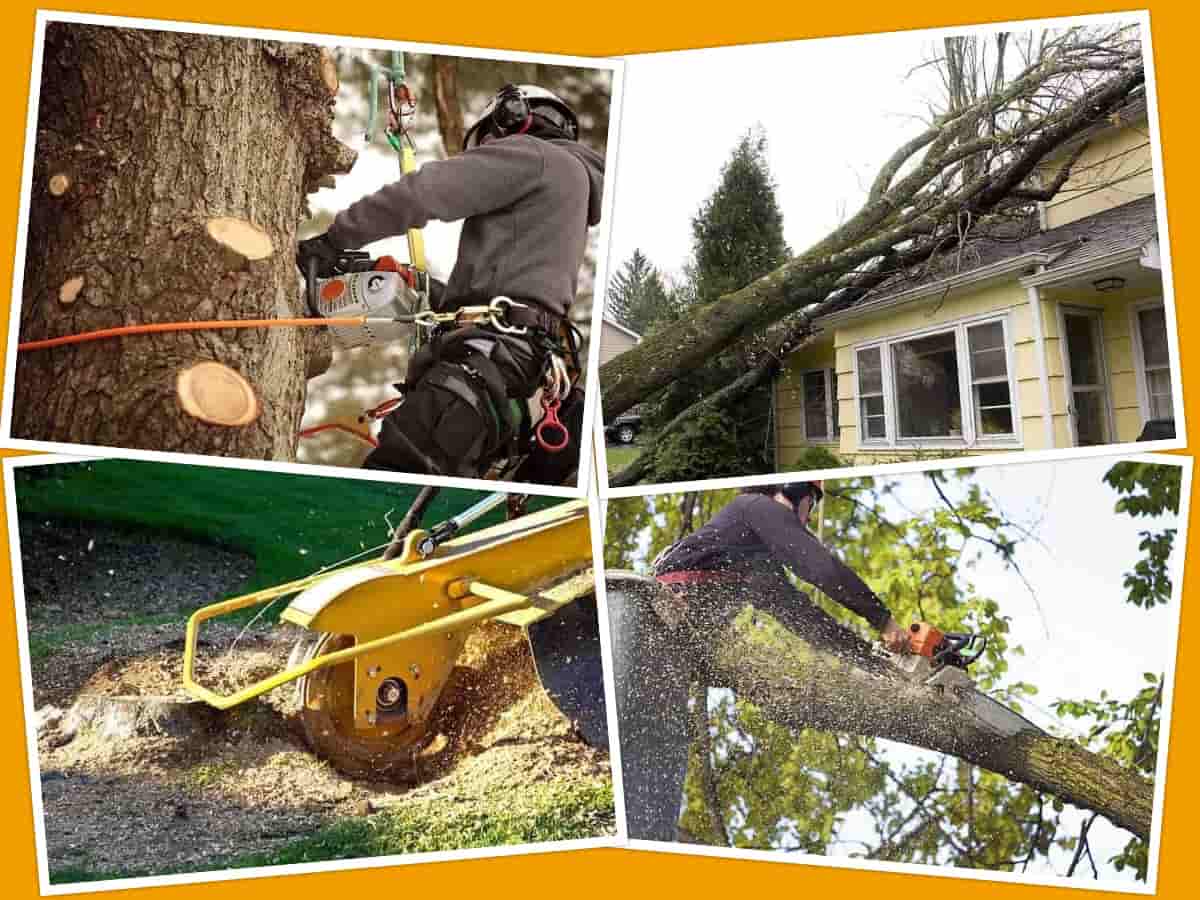Winter Tree Care Guide
Winters can be quite Harsh on your trees. snow and extreme cold temperature can make a tree susceptible to injuries and damage to trees. especially if you have exotic plants that are not native to your area they might have a more difficult time during the winter months.
Sunscald and frost cracking can result in sudden changes in temperatures. Sunscald is an injury in which living cells are affected by day-to-night temperature variations just within the outer bark. On sunny days, as the sun warms up the exposed bark, it awakens the dormant cells within the tree. When temperatures drop below zero during the nighttime hours, these newly activated cells are then injured. Before cracking and falling down, the bark slowly darkens, becomes reddish-brown and becomes rough. In the winter months, the addition of snow and ice will produce more weight and increase the risk of breaking limbs. This responsibility can be lessened by having the trees professionally pruned and removing dead limbs. It is best to be careful if an ice storm happens. During the winter months, trees can struggle to find enough moisture. An arid environment is created by low moisture levels in the air and soil. And evergreens are particularly susceptible to burning in winter. With less water at the disposal of the tree in winter.
Here Are Few Ways You Can Take Care Of Trees During Winter:
Mulching
Mulching is the process of putting mulch substance around the tree. The mulch can be anything from wood shaving, cardboard shavings, sawdust, etc. Mulch is great to protect your trees during the winter months. Because they are insulating material they will protect the ground from becoming freezing temperature and prevent the roots from drying out and freezing. Add the mulch around the tree and not directly on the trunk of the tree. Do not wait for the winter to arrive before you much the ground make sure to do it right before the freezing temperatures are announced.
Give Shelter To Your Trees
Most trees, especially the Exotic ones will need shelter during the winter months if they are not used to the cold environment. If your tree is still in the nursery and you can bring it inside your house make sure you do it during the winter months. if you have multiple trees in your yard and you cannot bring all the trees inside the house you can make a Greenhouse outside and give them a shelter from the extreme weather conditions. This will prevent drying out and freezing of your trees, extreme loss of water and frossed bite.
Protect Your Trees From Pests
For critters such as rabbits, voles and field mice, winter restricts food sources. These tiny animals like nothing better than tree bark chewing, especially young, thin bark. The plastic tree guard, which you wrap around the trunk, protects your trees. Just make sure to work upwards from the base and wrap it to finish well above your region’s possible snow line. To keep chewing mice and rubbing deer at bay, you can also circle trunks with chicken wire or hardware fabric. Small animals are losing interest as trees age and bark develops fissures and a rough texture.
Wrapping The Tree In Plastic
Some varieties of deciduous trees should be wrapped for cover as a part of tree care in cold climates. The guidance refers specifically to new plants, young trees or saplings. For trees that have thin bark texture, like soft oak, ashes, willows, honey locust, and crabapple, wrapping is also called for.
Wrapping a tree trunk protects the bark from damage that can occur in winter or from splitting. It also protects against damage from lawn care devices such as mowers and trimmers, avoids damage from wood-boring insect pests, and prevents squirrels, rabbits, and deer from attempting to snack on the tender bark when their food sources are limited.
Appropriate Pruning
Take time during the winter to inspect trees, especially in regions where leaves fall. Winter presents the perfect opportunity to see the structure and outline of a tree and make choices on any branches that need to be cut. Dormant pruning is an excellent way to reduce the spread of disease and secure existing plantings under trees.

HOW CAN WE HELP YOU?
To Get a Free Quote Call Us Now !
Address
Harrisburg, PA 17110
Phone
717-934-1708
Working Hours
24/7 Emergency Service
